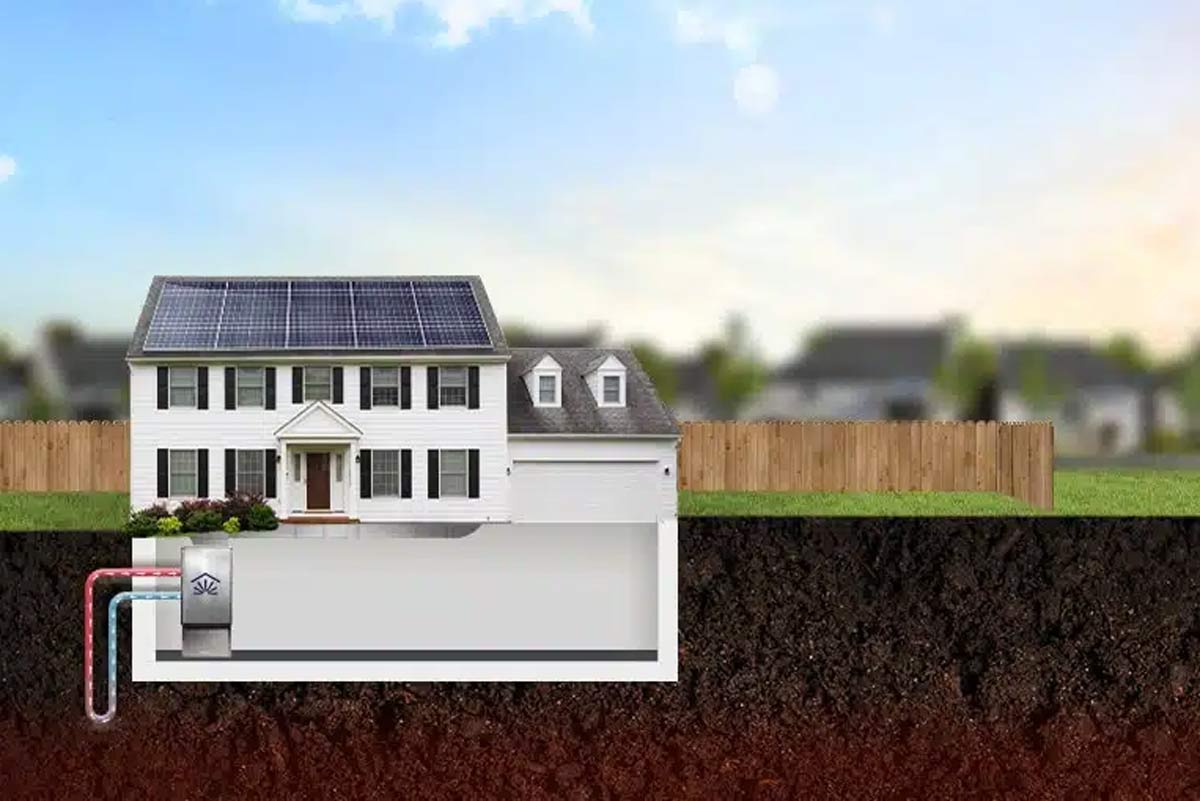
After looking at over 300 HVAC startups, this summer we quietly invested in Dandelion Energy, formerly a Google X spinout. We like HVAC. Heating and cooling is one of the largest markets in the world, and one of the 10 most expensive items households and building owners will ever own. One of the most important loads in energy. Huge load, huge market, huge importance, huge GHG impact. And the tech is old. Very old.
Craig, Q and I live in Texas. Which pretty much is unlivable without HVAC. Quoting Gen. Phil Sheridan pre HVAC in 1866 “If I owned Texas and Hell, I would rent Texas and live in Hell.” There’s a reason Houston is an epicenter of HVAC. Fun fact, two of the largest venture backed M&A exits in cleantech history are HVAC – Nest and Ecobee, look it up. And we like Dandelion CEO Dan Yates, who happens to have been the founder and CEO of Opower, still after 25 years the best venture backed software exit in cleantech and climate. Craig Lawrence backed him then at Accel. This time Dan is doing hardware. In our fav sector. With a really, really good idea. Meet the new Geo, the world’s most efficient geothermal heat pump.
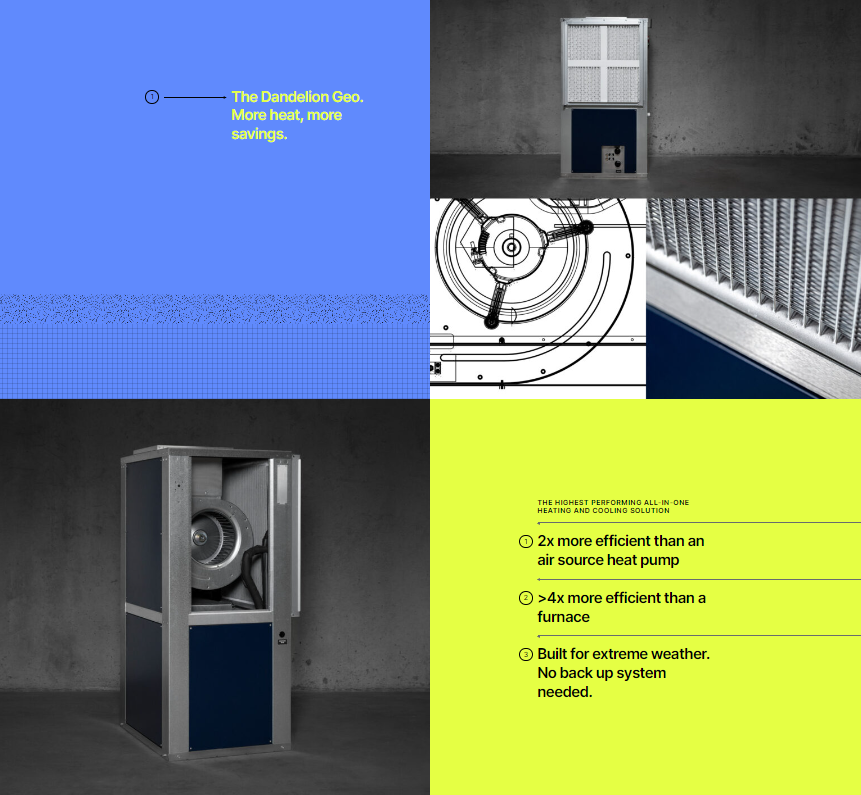
So why geothermal HVAC? When we say we’ve been looking for a better HVAC, it’s generational. Both my grandfather and great grandfather were HVAC engineers. I am not. So I’ve summarized the problem statement/reason for being for Dandelion, excerpted straight from the book Air Conditioning written by my grandfather in 1957 with his father who was the Dean of Engineering at UT and one of the top refrigeration and HVAC engineers in the country. You will note the emphasis in the book on well water, open loop ground source as the sexy idea of the early heat pump days back before you couldn’t drill water wells on your property in cities (as discussed on the Dandelion website industry history). Also note my grandfather expends little energy discussing air source – only in passing – just not as attractive on a thermodynamics basis comparatively to a real HVAC engineer! His groundwater temperature table in the US state capitals and the geographical commentary on market attractiveness are probably still directionally accurate, though the effective spark gap has shifted somewhat.
Why will Dandelion be Huge?
“While the name heat pump has become rather firmly attached to reversed-cycle refrigeration, this is somewhat unfortunate in that public understanding seems to be that this system is for building or process heating. Within the hot-dry and hot-humid zones the effective use of reversed-cycle refrigeration is far more attractive for its cooling function than its heating function. …when an economic analysis of the possibilities of the cycle is made, it has no serious competition from other types of cooling systems. … From an electricity heat-conservation viewpoint, the heating part of the cycle is very attractive.
… The availability of heat from the refrigeration cycle will depend to a great extent upon the temperature level of the cooling air or water used in the condenser.
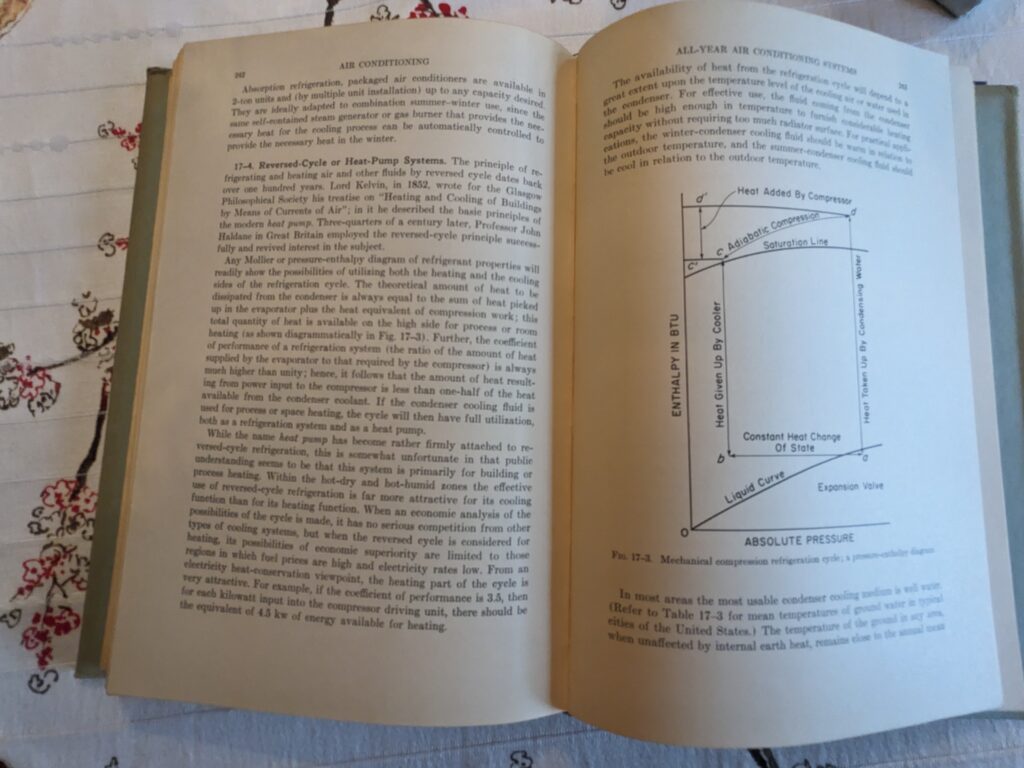
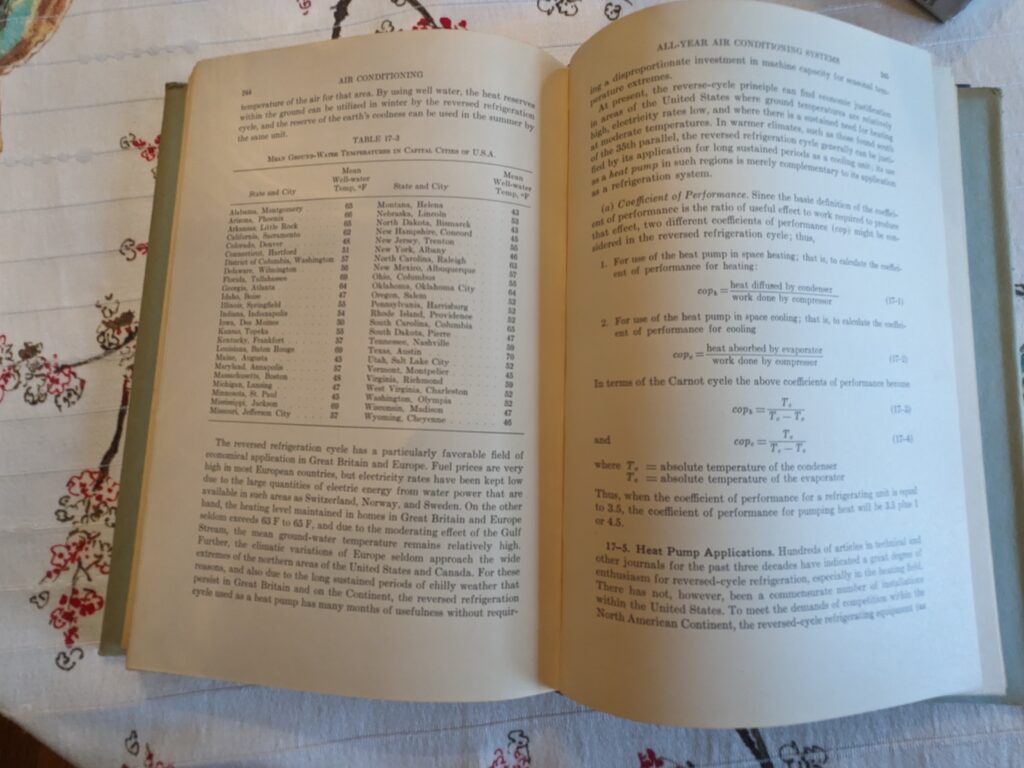

… In most areas the most usable condenser cooling medium is well water…. The temperature of the ground in any area…remains close to the annual mean temperature of the air in that area. By using [well] water, the heat reserves within the ground can be utilized in winter by the reversed refrigeration cycle, and the reserve of the earth’s coolness can be used in the summer by the same unit. …
At present, the reverse-cycle principle can find economic justification in areas of the US where ground temperatures are relatively high, electricity rates relatively low, and where there is a sustained need for heating at moderate temperatures. In warmer climates the reversed refrigeration cycle generally can be justified by its application for long sustained periods as a cooling unit….
Hundreds of articles … for three decades have indicated a great degree of enthusiasm for reversed cycle refrigeration, especially in the heating field. There has not however been a commensurate number of installations within the US. …The reversed cycle refrigerating equipment (as applied to house heating and cooling) will need to develop a higher degree of reliability, reduced first cost, and a higher year round factor.”
– Air Conditioning, Ronald Press, 1957, Woolrich and Woolrich, Ch 17
Now cue Dandelion deck slides on homebuilder unit economics, Geo performance and cost reduction roadmap, and the slide showing that Dandelion’s groundsource design dramatically improves the year round factor…
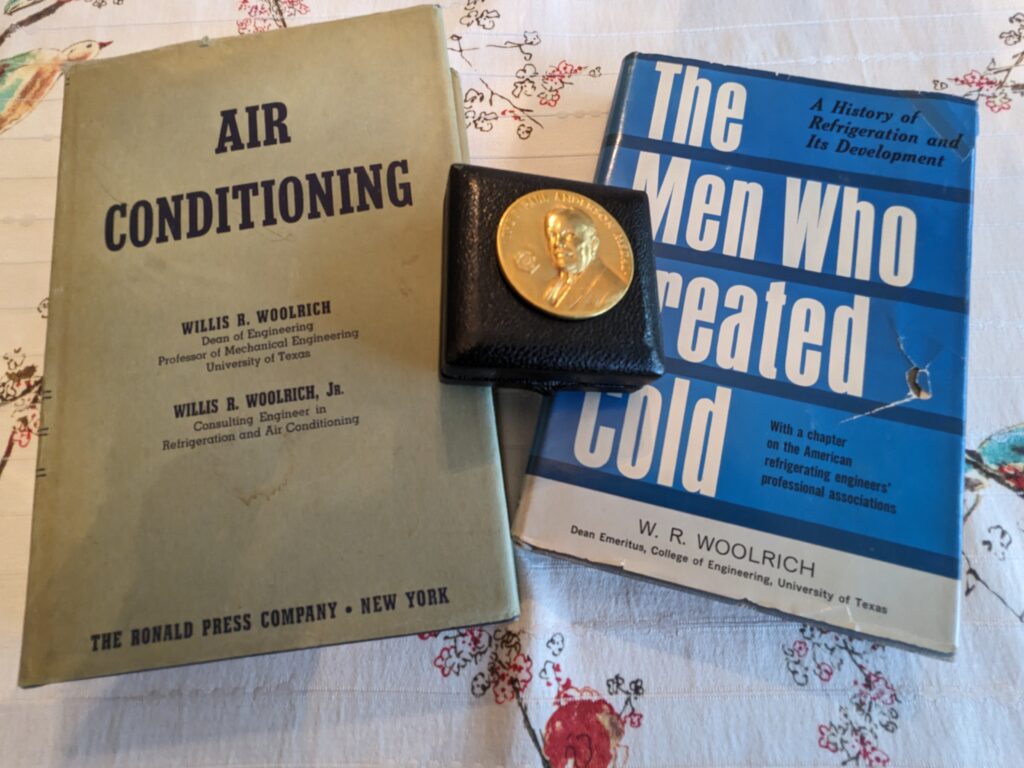
Next to Air Conditioning is pictured my copy of The Men Who Invented Cold, the first history of the industry from 1967 and one of dozens of HVAC and refrigeration books my great grandfather wrote, (it leaves out almost all the heat pump inventors except Kelvin as I guess they just weren’t considered important yet!) and my great grandfather’s F Paul Anderson Award, the highest award given by ASHRAE. The first Anderson award winner in 1932 was Willis Carrier, and there have only been 67 awards since established in 1930. I told Dan I’m putting it in my Google calendar to nominate he and founder Kathy Hannun for the award on the 100th anniversary in 2030. That would give them 6 years to change the world…
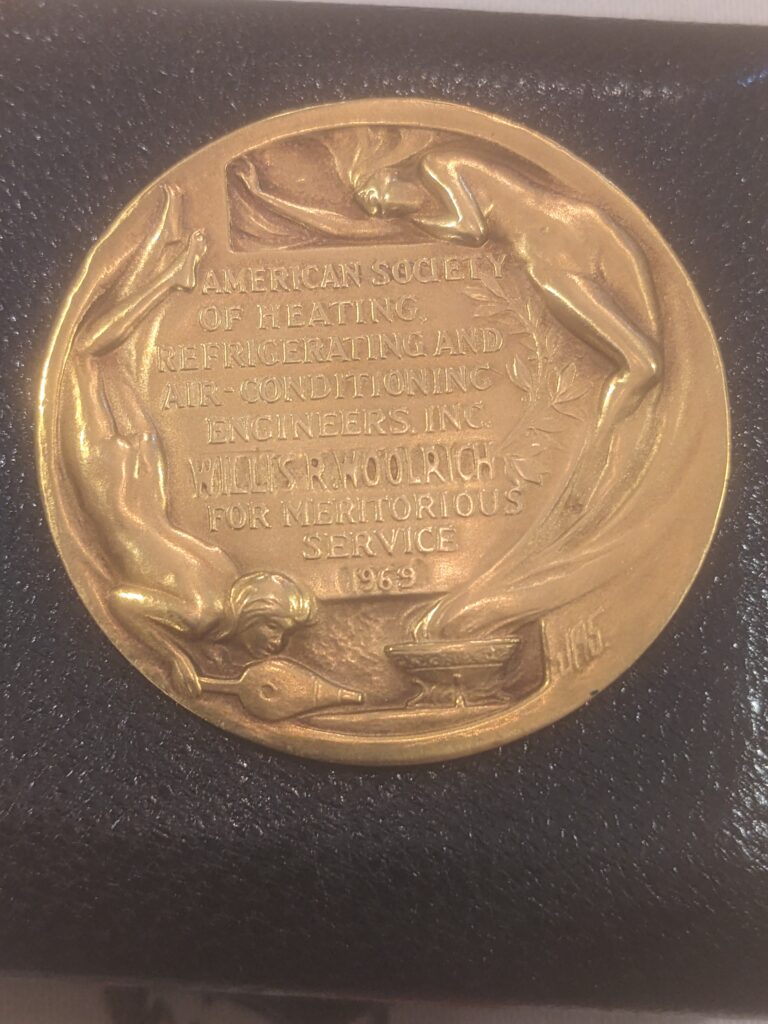
Share this Post

